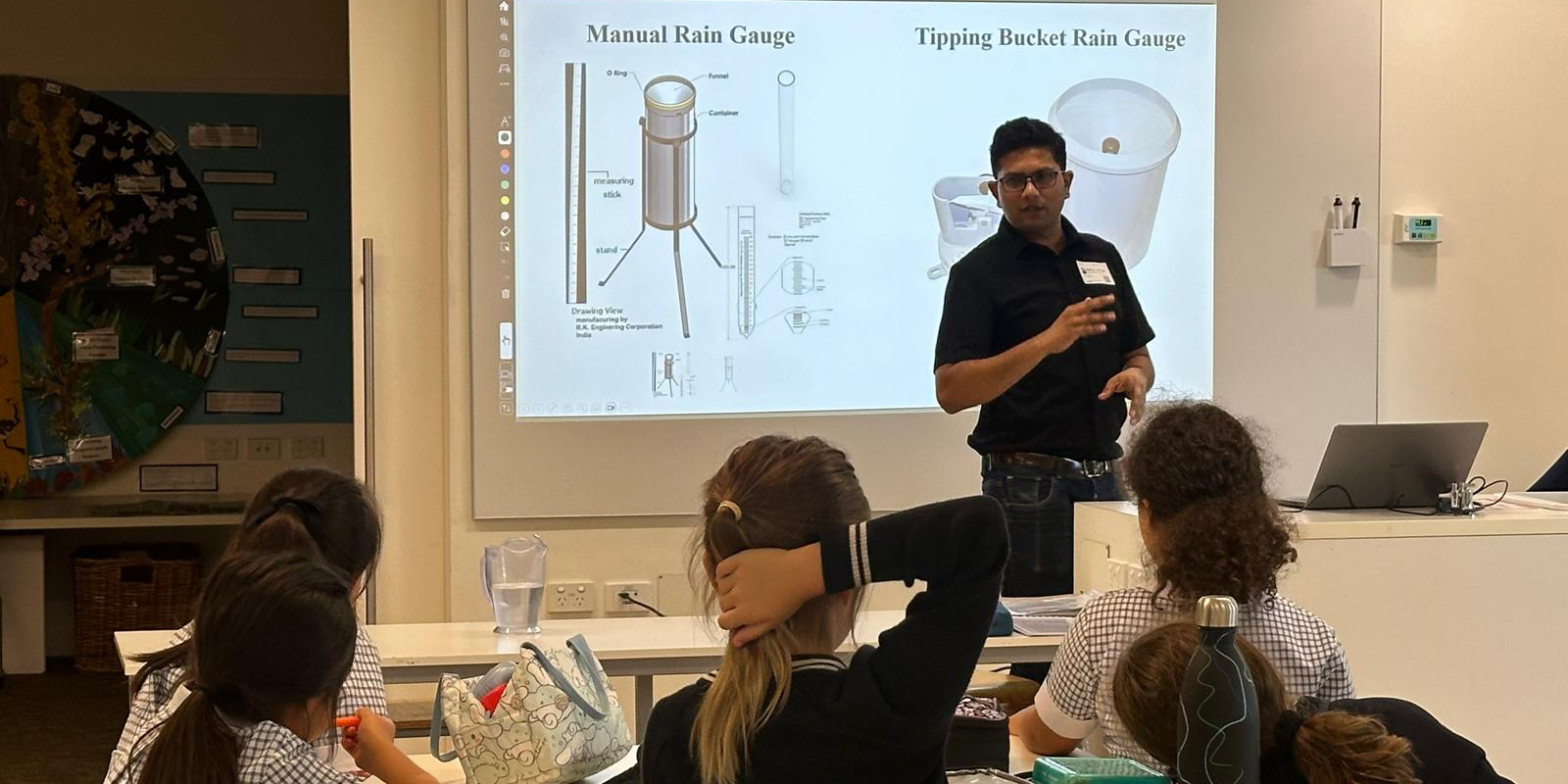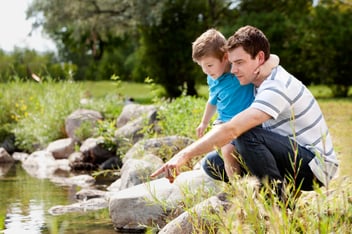Sparking curiosity: AWA Water Ambassadors leading water literacy

Australian Water Association (AWA) Water Ambassadors inspire students to champion water literacy and sustainability, raising awareness of water’s value through school engagements, storytelling and education.
Water Ambassadors engage by leading school visits, sharing water stories, promoting National Water Week, and advocating for sustainable practices. They act as local champions, encouraging informed, practical conversations about water.
University of Melbourne Graduate Researcher Akshay Kashyap said becoming an AWA Water Ambassador felt like a very natural step due to his background in researching real-world water challenges.
"I'm working on fluoride contamination in rural India. And I've always believed that the biggest impact often starts with awareness,” he said.
“When I heard about the AWA Water Ambassadors, I thought it was the perfect chance to connect science with people, especially young students.
"The opportunity wasn’t just about teaching them something; it was about sparking curiosity. That’s what motivated me to become an AWA Water Ambassador.”
Despite having personal motivation to help raise water literacy and curiosity within students, Kashyap said this work is crucial in terms of helping to raise awareness among students about all the incredible careers in water that are available.
"There is a clear skills gap developing in the water sector. A lot of senior staff and experts are retiring and we need fresh minds to step in. To get students or young people interested, we need to start early,” he said.
"School programs like this are a great start. We need to show that water careers are diverse and impactful. Some people think it’s just about pipes and pumps, but it’s more about data, environment, policy and people.
"If we can show that, we’ll have a stronger and more passionate workforce coming in."
Leaning into learning
Kashyap began his Water Ambassadorship during National Water Week in 2024, where he connected with Melbourne Girls Grammar School, scheduling a visit for early 2025.
"One of the highlights for me was having the chance to talk to young students. We did the presentation during lunchtime. But they were focused and asking a lot of questions,” he said,
"It was not a one-way communication, it was more of a discussion. AWA provided materials to help, but we ended up talking about everything: how water is delivered, opportunities in the water sector, how to measure rainfall, and more.
"I was amazed that they even knew how to measure rainfall. I shared recent rainfall data and yearly rainfall, then gave them a chance to calculate average rainfall. These are the kinds of things we did in the class.
"I also shared stories from back home, about communities dealing with unsafe drinking water and how local solutions can make a real difference. It was a very refreshing experience and honestly, gave me a lot of hope to see the students so engaged.
“I even brought a pH meter from my lab to show them how to use it. I asked them questions like, 'How do we measure water volume?' They were enthusiastic, with fresh energy and new ways of thinking."
One thing Kashyap noticed was that the students were very interested in water conservation and how that could be achieved at their school.
"We discussed how to save and conserve water by fixing leaks, using dual-flush systems in toilets, or using rainwater. These things can really add value to schools,” he said.
Two-way teaching
During the visit, Kashyap was reminded that communication is a valuable skillset, one that water professionals need to continue to hone and develop – and why Kashyap thinks all water professionals should get involved with communicating with diverse groups.
“As a researcher, I often have to present complex work, but when talking to school students, you can’t present the same way,” he said.
"Translating complex science into something simple and meaningful is important, how to communicate complexity clearly.
“That’s why more water professionals should get involved in these kinds of activities. It helps you practice communicating with different audiences about your research or whatever work you're doing."
On recommending the program to others, Kashyap said becoming an AWA Water Ambassador is a great way of skilling up in water literacy promotion and practices.
"Like I said before, communication is a skill and we need practice to develop it. Some people are natural at it, but, for people like me, we need more practice,” he said.
“So, for anyone working in the water sector who wants to enhance their communication skills with different audiences, this is a perfect platform."
Interested in becoming an AWA Water Ambassador? Register today.



